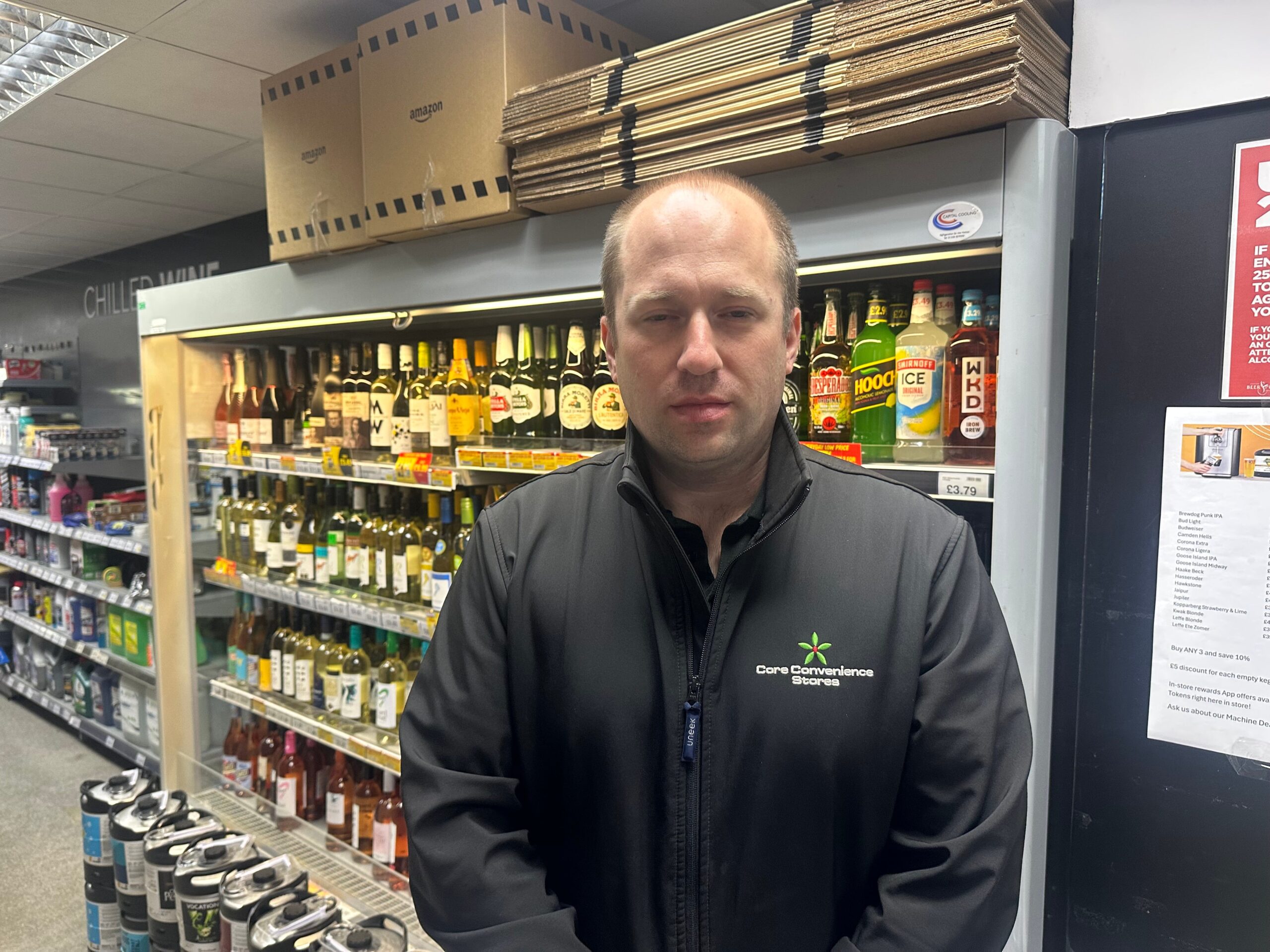A shopkeeper who dragged a taunting thief back to his store said the man’s punishment sent out the wrong signal to other potential criminals.
The shoplifter casually opened a can of Foster’s beer as he walked out of Core Convenience in Durham without paying for a £10 crate of the lager.
But he was stopped by store owner Andrew Board, who grabbed him and brought him back to the entrance.
Despite Mr Board’s brave actions, officers at Durham Constabulary did not take the matter to court after locating the suspect, who admitted to the offence.
Instead he was dealt with through a community resolution, often used for minor offences or incidents of antisocial behaviour, and does not result in a criminal conviction.
Under the solution, the offender paid back the money for the beer and was then banned from the entering the shop.

“This is a wrong signal and fuels the problem,” said Mr Board. “A person then knows that they can steal as they wish, and if they get caught, they would just have to pay for the goods then.
“On this case, there was essentially no punishment for attempting to steal goods. He could have got away without paying, but as I caught him, he was just made to pay for it. No deterrent in the legal sense.”
Mr Board said he dealt with several shoplifting incidents at his store every week.
He has had to make multiple citizen arrests and enhance the CCTV system within the shop as a result of thefts.
Sought-after items for criminals, such as Lurpak butter, 20-can packs of Budweiser and large bottles of Comfort softener, have had to be removed from shelves.
Mr Board’s battle with shoplifters reflect a national issue with police receiving a record number of reports for shop thefts last year.
But most reported offences do not lead to punishment.
Home Office data analysed by The Independent showed just 18 per cent of reports of shoplifting resulted in a person being charged or summoned to court in 2023/24 in England and Wales.
In more than half (56 per cent), police failed to identify the suspect and the case was dropped.
Of those sentenced for shoplifting at court in England and Wales last year, 27 per cent received a custodial sentence.
Mr Board said that because of the time it took to get a case to court, the community resolution given to the offender for the offence was “probably the best option to get the money back fast”.
But he added: “It shouldn’t be like that. We should get our money back quickly, and they should get punished.”
Last week, Home Secretary Yvette Cooper announced that extra officers will be deployed on the streets of 500 towns in a summer crackdown on shoplifting and antisocial behaviour.
She said: “Residents and businesses have the right to feel safe in their towns. But the last government left a surge in shop theft, street crime and anti-social behaviour which has left too many town centres feeling abandoned.
“It’s time to turn this round, that’s why I have called on police forces and councils alike to work together to deliver a summer blitz on town centre crime to send a clear message to those people who bring misery to our towns that their crimes will no longer go unpunished.”
A Durham Constabulary spokeswoman said: “We take this type of offending extremely seriously and work hard to tackle the issue across our force area.
“A large proportion of shoplifting offences are opportunistic and committed by people with drug or alcohol addictions. That’s why, as a force, we must look at the bigger picture and find out why individuals offend in the first place and seek to address the underlying reasons for their offending.”
